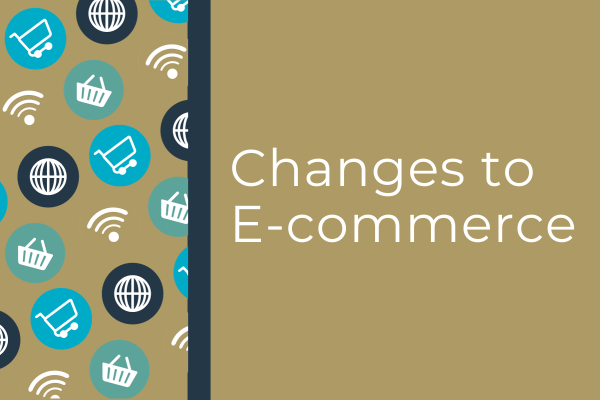E-Commerce blog

As an E-commerce specialist, in this article I will discuss the key factors as to what you should be considering before starting your E-commerce business but also very briefly the main VAT and tax legislations which you need to be aware of when running an E-commerce business.
As online sales continue to rise you may be thinking of setting up a new online business to sell a new product idea you may have. Or you may be thinking of expanding your established business by adding online sales to your income stream. E-commerce offers a wide audience to your products removing the restrictions of customer locations. When setting up an E-commerce business there are many factors to consider both prior and whilst running your online business.
Before you go ahead with starting your E-commerce experience here are some issues you may need to consider before getting started:
- Have you got a niche product and what is your local/national/global competition?
- How will you attract, engage and retain your online customers and have you undertaken any market research?
- Have you considered any patent/trademark/copyright eligibility?
- Have you considered if you will have your own website or will you use online marketplaces?
- What E-commerce model will you use?- Dropshipping, Reselling, White/Private Labelling, Manufacturing, Digital or Hand Crafting?
- What is your product profitability expected to be taking into consideration the various E-commerce models will have different shipping and storage costs which will also be dependent on quantities ordered and whether the order can use one or multiple suppliers?
- Have you considered how you will overcome local taxes, duty, policies, currencies and the risks of fraud?
Legal status
Depending on the scale of your business you may wish to incorporate your business to provide commercial protection for you personally as a limited company is a separate legal entity. This isn’t always necessary and you should seek professional advice to discuss your personal and business circumstances in more detail.
Taxes
Regardless of your legal status it will be necessary to record and report your trading activity to HMRC. Your sales and purchase activity should be able to be downloaded from the online software you use and if you use a separate bank account (which is compulsory for a limited company) then keeping track of these should be straight forward. Online bookkeeping software such as Xero, Quickbooks, Sage and Freeagent as examples provide solutions for recording your transactions in one place and are usually compatible with other third party software such as Amazon, Paypal and Shopify.
From 1 January 2024 online digital platforms such as Amazon, Ebay, Vinted and Etsy to name a few, will be required to report seller’s information and income to HMRC – however the reports may not be reported until January 2025 but will report income from 1 January 2024. Copies of these reports will be shared with you as the seller, which will help you comply with your tax obligations and ensure you are reporting the correct income figures on your compliance documents.
VAT
When it comes to VAT and E-commerce this needs to be very carefully considered as you not only have to consider VAT and duty but also other countries VAT and duty rules if you are importing and exporting overseas.
In the UK you must register for VAT when your UK turnover exceeds £85,000 but there may be circumstances where you may want to voluntarily register for VAT below the turnover threshold.
The rules for selling and shipping goods are complex when trading in and out the EU, Northern Island and outside the UK and professional advice should be sought to ensure correct VAT treatment is applied.
You may need to consider contacting a customs agent to handle the importing of any goods and ensuring the paperwork is handled correctly to avoid any transit delays.
Should you require any further information detailed in this article please do not hesitate to contact your local Perrys office.






